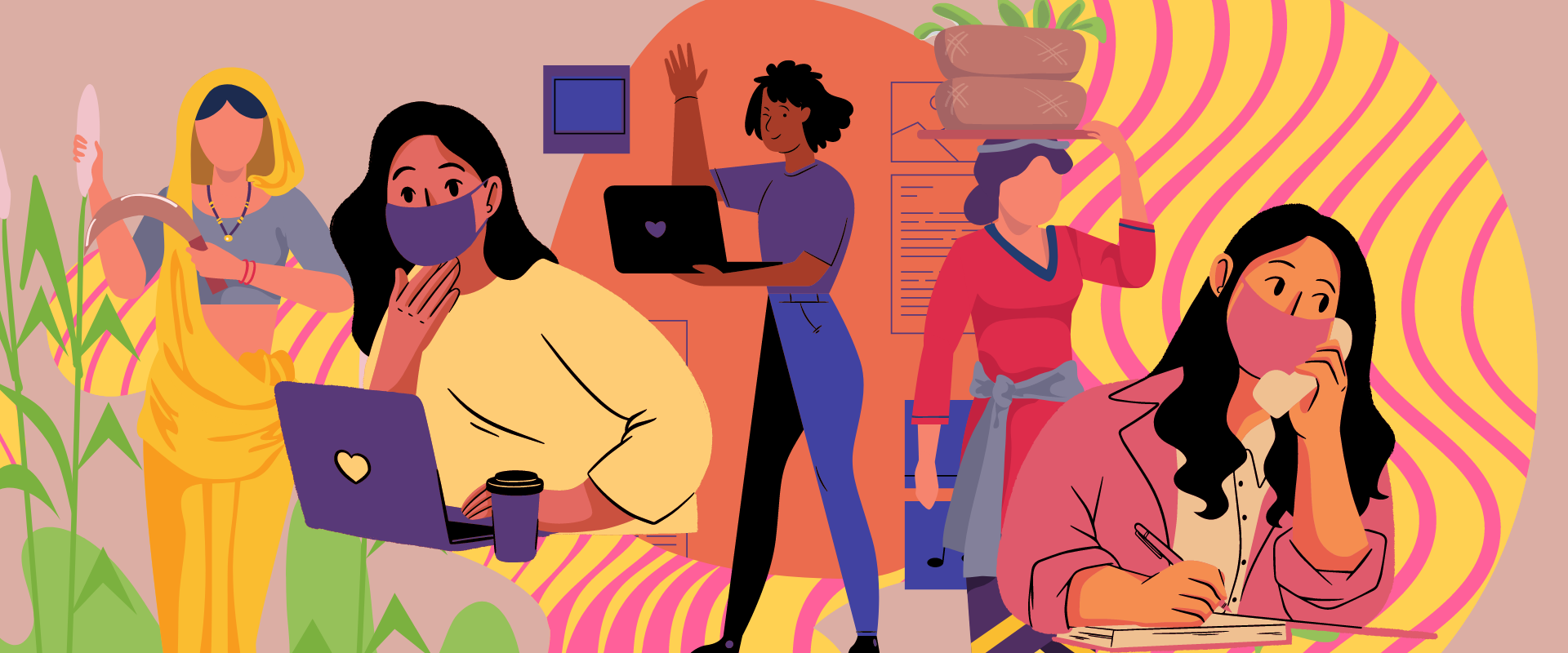Dabindu Collective is an organisation based in Sri Lanka which works closely with women workers in Free Trade Zones and other industrial areas. On November 27th, they organised a protest against the multinational clothing-retail company H&M, which has consistently failed to provide its workers with living wages. The primary participants in the demonstration were workers of the Hidramani Factory, Vavuniya, Sri Lanka.
It was a peaceful protest and demanded only that workers be given the living wages they are legally entitled to. Yet, according to sources at Dabindu Collective, the workers who had taken part in the protests were interrogated and threatened by the factory management. With employment opportunities being scarce, this served to be an efficient means to scare the workers into silence.
What’s worse is that an absence of living wages for their hard labour isn’t the only problem troubling these workers – these factories also don’t provide job security or care about occupational health and safety. Gender-based violence is another issue that they turn a blind eye to.
the workers who had taken part in the protests were interrogated and threatened by the factory management
The protest which Dabindu Collective helped stage in Sri Lanka was just one of several protests which took place around the world – in countries such as Italy, Bulgaria, Croatia, the UK and the USA – as part of the ‘global week of action against poverty wages at H&M‘. Held from 23rd to 30th November, the anti-H&M week was organised by Clean Clothes Campaign, the garment industry’s largest alliance of labour unions and non-governmental organisations.
Why is H&M the focus of worker protests around the world?
With 239 companies just in the UK failing to provide living wages to its workers, one can only imagine how many companies around the world exploit their workers. Why then is there a concerted, concentrated effort to call just H&M out? The reasons for it are several.
The primary among these is the fact that in 2013, H&M released a press statement saying, “In a first step, our goal is that H&M’s strategic suppliers should have pay systems in place to pay a fair living wage by 2018. By then, this will affect 850,000 textile workers.” The international fashion brand has not fulfilled its promise and on the contrary, has removed its original statement from its website.
Also read: Female ASHA Workers Rally Demanding Better Wages And Working Conditions
In fact, the ‘global week of action against poverty wages at H&M’ is being held to mark the 5-year anniversary of this ‘goal’ that the company evidently never meant to achieve. Their latest sustainability report instead reads (very conveniently), “Supplier factories representing 50% of product volume should be using the Fair Wage Method by 2018 and 90% of business partners should regard H&M as a fair business partner by 2018.”
This ‘Fair Wage Method’ was developed by Daniel Vaughan-Whitehead, senior economist at the International Labour Organisation. According to Clothesource, “Its website shows how this [the Fair Wage Method] does not contain an unambiguous definition of a ‘living wage’, but takes great pains to ensure wages are seen by all stakeholders as fair.” It is deeply distressing that H&M chooses to employ these tactics just to proudly proclaim that it has reached its goal, instead of actually working for the welfare of its workers.
Back in 2013, the company got numerous praises and media coverage for its original statement, hailing it as some sort of warrior for labour rights. Innumerable consumers who care about sustainable fashion also poured in support. To this day, the ‘Sustainability’ section of the brand’s website reads, “It’s also a part of our internal goals: To 100% lead the change towards a more sustainable fashion industry.” Perhaps H&M should make sure its own factory workers work in decent conditions and get living wages before it tries to “lead a sustainable fashion industry”.
H&M should make sure its own factory workers work in decent conditions before it tries to “lead a sustainable fashion industry”
The testimonies from the H&M factories’ workers are truly heartbreaking. “The wages are so low that we have to work overtime just to cover our basic needs”, says a worker from India. More often than not, even working overtime proves to not be enough for earning a living wage. This isn’t just illegal, this fits the International Labour Organisation’s definition of ‘forced labour’. High temperatures, bad air quality, constant pressure and fainting are just everyday realities. In fact, there are several cases of workers being fired for fainting during work hours.
When workers do band together to protest against this inhumane treatment, their voices are actively suppressed through threats, as in the aforementioned case of the Hidramani factory. This is so rampant that workers in all the factories fear organising in independent unions.
It is absolutely revolting how H&M tries so hard to incorporate diversity into each of its advertisements just to please its consumers, when the reality of the countless disadvantaged groups from around the world that it claims to represent, is quite the polar opposite of the life of glamour these ads portray – a reality that H&M actively contributes to maintaining.
The Role of the Consumers
H&M is the poster child of sustainable fashion. This is an identity that it has come to be associated with because we, as consumers, don’t care enough about how these big multinational brands are run. As long as they maintain good PR, it doesn’t matter to us. We don’t care about the millions of poor workers who are subjected to barbaric conditions and on the backs of whom these companies are built.
We are happy to drive to fancy malls and buy overpriced clothes from these brands with a clear conscience because hey, they had an interracial gay couple in their ads, right? You are a woke person after all. You care about these issues.
High temperatures, bad air quality, constant pressure and fainting are just everyday realities
We need to realise that these brands continue to run and flourish despite their deplorable levels of delictum because we continue to buy from them. We need to start paying more attention to labour news and actively boycotting brands which treat their workers poorly.
Also read: How The Overworked Female Anganwadi Workers Are Continuing To Fight The Odds
H&M refuses to provide living wages to 850,000 workers around the world from 750 factories representing 60% of production. Its published supplier list contains over 1,000 factories. Clean Clothes Campaign rightly states, “H&M certainly has the financial means and other resources to live up to the commitment, and to ensure that living wages are paid to the workers. All that H&M is lacking is the political will to do it.”
It’s high time we, as consumers, provided the means to that political will.
Featured Image Source: Facebook





Good one written…..